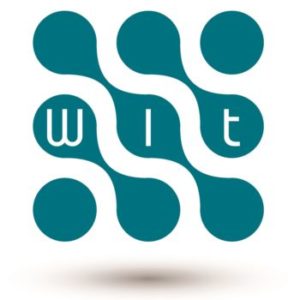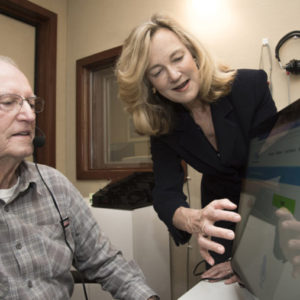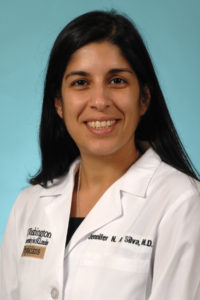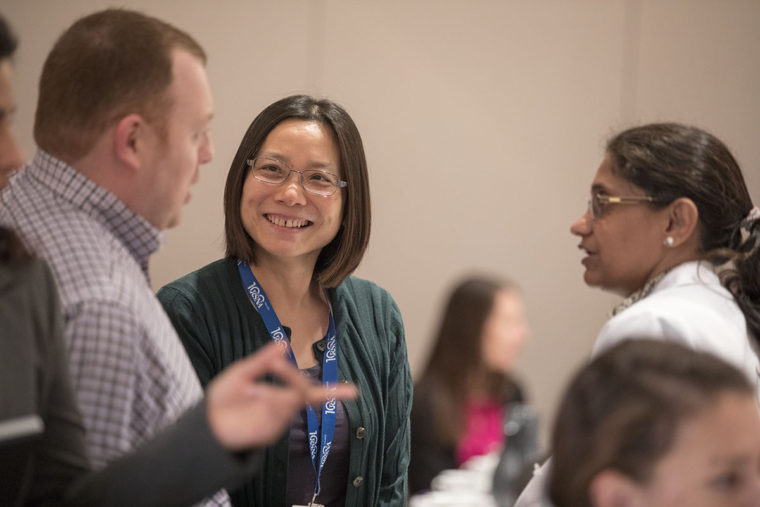After decades of working to help people with hearing loss, Nancy Tye-Murray, professor of otolaryngology at Washington University School of Medicine in St. Louis, had a realization: “If I don’t turn my work into a business by the time I retire, the research will retire with me.”
Eight years later, clEAR opened for business.
Toiling in the practice of medicine is one thing. When Tye-Murray set out to create a business, she wasn’t sure where to begin.
“I started by sending an unsolicited email to Provost Holden Thorp,” she said. “He responded in about 5 minutes; he told me I should be contacting the Office of Technology Management.”
OTM has grown in depth and breadth since Tye-Murray first got in touch. Last year, the office worked with about 115 women faculty members and post-doctoral fellows, assisting them with filing patents or listing them on intention disclosures.
 In an effort to continue to help to educate, train and guide women through the commercialization process and connect them to community resources, the office is organizing the Women in Innovation and Technology symposium from noon-6 p.m. Feb. 27 at the St. Louis College of Pharmacy, RAS Event Room 220/221.
In an effort to continue to help to educate, train and guide women through the commercialization process and connect them to community resources, the office is organizing the Women in Innovation and Technology symposium from noon-6 p.m. Feb. 27 at the St. Louis College of Pharmacy, RAS Event Room 220/221.
Nichole Mercier, managing director of OTM, understands some of the challenges women can face in the tech transfer world. When she first joined the office, she was the only woman on the licensing team. Now, she brings women from across the university and the city together for the symposium, which she started in 2014.
Although the focus of the symposium is women faculty, it is open to everyone. “It has become a great gathering space with small startups, investors, lawyers and entrepreneurs from the community who can sit down together, engage the inventors or would-be inventors at Washington University, and make a connection,” Mercier said.

The symposium, along with other Women in Technology programming, has made a difference. “You can see it in the data we have. In the number of invention disclosures that list women, in the increase in female faculty that engage with the office,” she said. “There is a very real upward trend in the data since we started this program.”
OTM assisted Tye-Murray and her colleagues by helping to: file patents, protect their intellectual property, and provide financial incentives in the form of grants and investments. But it also facilitated in other ways.
“In particular, (OTM) brought in some guest speakers. I got to know one of them a bit, and had her come to our office and talk to the team,” Tye-Murray said. “She gave us tips based on her experience, and that was very helpful.”
Tye-Murray became the first female faculty member to take her technology from the university and turn it into a business.
For Jennifer Silva, MD, director of pediatric electrophysiology at the School of Medicine, the most valuable aspect of working with OTM wasn’t getting help with patents, though it did assist with that.
When she started her business venture, OTM made sure that Silva and her team were fully engaged in the project at every step. Silva, also associate professor of pediatrics and of biomedical engineering, recently was named an inaugural faculty fellow in entrepreneurship.

“Perhaps the most important thing they’ve done is to include us in the process and teach us,” she said. The more she learned, the more meaningful her role in the venture became.
That knowledge is not just instructive for Silva and her husband, Jonathan R. Silva, assistant professor of biomedical engineering in the School of Engineering & Applied Science and co-founder of their business, SentiAR. Ultimately, it could benefit her patients — and others around the world.
“OTM is a resource, and they’re working with faculty who are also investigators and inventors, for the benefit of all patients,” she said. “I can touch a million patients this way.”
The symposium is sponsored by Polsinelli.
